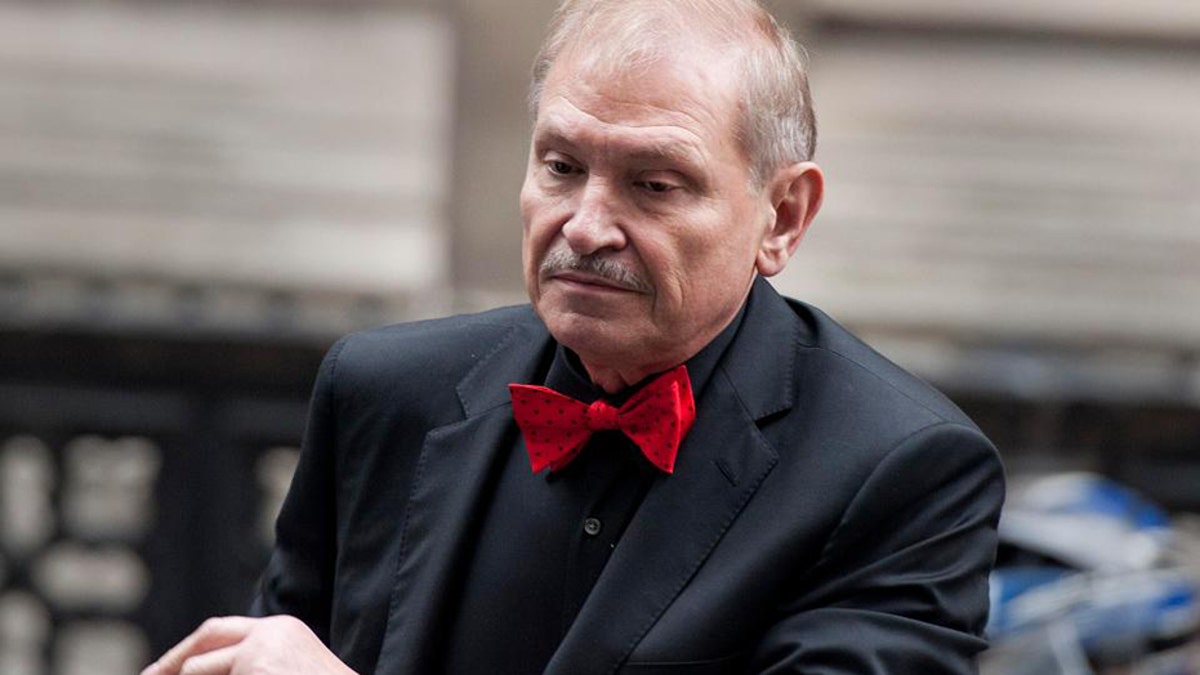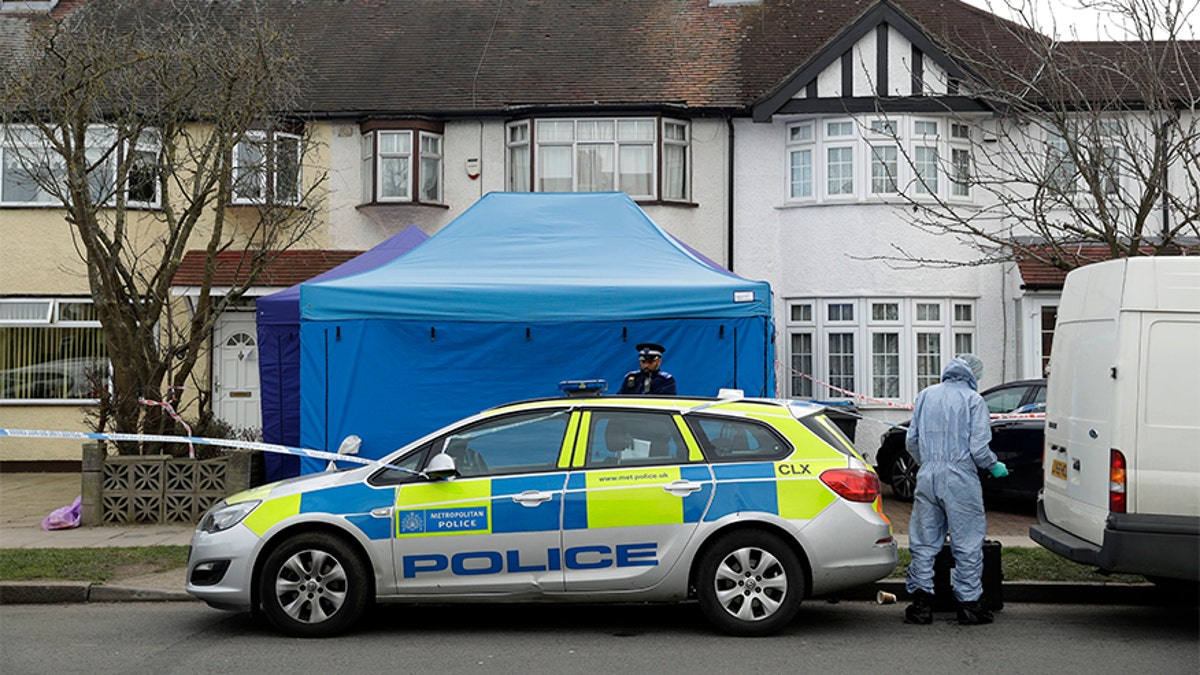
Nikolai Glushkov (Ki Price/The Times/Mega)
There were no signs of forced entry at a London home where a Russian businessman was found dead with his neck crushed a week ago, British police announced Monday, as the investigation continues into what appears to be another Kremlin-ordered hit.
Nikolai Glushkov, 68, was found dead at his southwest London home on March 12. He was an associate of Boris Berezovsky, a wealthy Kremlin critic who died under disputed circumstances in 2013.
The murder investigation is being headed by counterterrorism detectives because of the "associations Mr. Glushkov is believed to have had," police said Monday, according to The Associated Press.

March 14, 2018: Police work at the scene outside a house in New Malden, southwest London, which has been sealed off after Russian businessman Nikolai Glushkov was found dead. (AP)
They added that there were no signs of forced entry into Glushkov’s home in the New Malden neighborhood. Police revealed Friday that an autopsy found he died from a neck compression.
Glushkov had worked for various Berezovsky enterprises including the car factory AvtoVAZ and flagship Russian airline Aeroflot.
He was arrested in 1999 and put on trial for embezzling $7 million from Aeroflot. In 2004, he was sentenced to three years and three months in prison, but released because of time served.
Last year, Glushkov appeared on a list published by the Russian Embassy in London of Russian citizens wanted for serious crimes whom the U.K. had refused to extradite. It said Russia had sought his extradition in 2015 "for committing a number of severe financial offences on the territory of Russia," but the British government refused.
Glushkov’s suspicious death occurred a week after former Russian spy Sergei Skripal, 66, and his 33-year-old daughter, Yulia, were poisoned by a nerve agent on March 4 in Salisbury.
British authorities blamed that attack on Moscow, with Foreign Minister Boris Johnson saying it's likely the order to poison the pair came directly from Russian President Vladimir Putin.
However, British police say they do not see a link between the Glushkov case and that poisoning. Despite this, they have contacted other Russian exiles in the last few days to discuss their safety, The Associated Press reported.
Russia has denied any involvement, but both incidents appear to be only the latest in a long line of Kremlin-ordered hits against spies and dissidents.
Russia spy agencies over the decades have found creative ways of silencing their enemies, including the infamous 1978 poisoned-umbrella stabbing in London of dissident Bulgaria writer Georgi Markov.
The most infamous recent assassination was that of Alexander Litvinenko. A former intelligence officer who defected to London in 2000, Litvinenko publicly accused his superiors of hatching an assassination plot against a Russian oligarch.
While in London, Litvinenko fell ill in November 2006, dying soon thereafter. His death was ultimately attributed to drinking tea poisoned with radionuclide polonium-210.
A judicial inquest ruled in 2016 there was a “strong probability” Litvinenko’s death was a Russian intelligence operation that was probably approved by Putin.
In the last four years alone, dozens of high-profile Russians – including journalists, anti-corruption experts and politicians – also have all died under suspicious circumstances.
Fox News’ Lucia I. Suarez Sang and The Associated Press contributed to this report.
